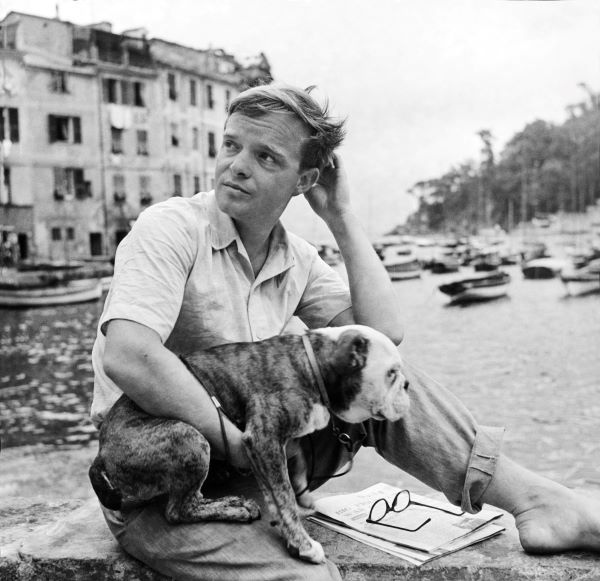
This documentary of Truman Capote and Tennessee Williams is an odd duck. It’s basically a dual biography of two titanic writers who had the shared experience of being successful Southern-born gay writers who grew up and flourished during roughly the same decades. They were more than acquaintances, but not quite good friends, who would occasionally vacation together—Truman described their relationship as an “intellectual friendship.”
Using the authors’ own words, the film manages to re-create a vivid sense of their times. Director Lisa Immordino Vreeland bases her film on their writings, which is smart choice, since Capote and Williams are eminently quotable and insightful. She then has Zachary Quinto narrate as Williams and Jim Parsons as Capote. Both do exceptional work, especially Parsons, who nails Capote’s particular speaking rhythm without sacrificing depth.
Unfortunately, what is onscreen is less involving than what is being said. There are a lot of soft-focus shots, such as a cloudy sky with sun beams streaming down, reminiscent of the imagery in Saturday Night Live’s “Deep Thoughts” sketches. Against this backdrop, photographs of the authors are often superimposed, interwoven with scenes from movies adapted from their works and extensive interviews from David Frost’s 1970s talk show (which reminds one how in-depth those shows can be), among other footage.
Luckily, we are talking about some of two smartest raconteurs the mid-20th century. Williams is, of course, a giant of the American theater, creating some of the most indelible plays to hit the stage, and Capote was not only an exquisite novelist but one who, with In Cold Blood, practically invented the true crime genre. Sure enough, we hear some great quotes. (Williams felt that to succeed in life, “it is necessary to break tender bonds,” and he defiantly stated, “I invented myself, and then I invented a world to fit me.”)
Vreeland, in putting these two writers side by side, attempts to create a sense of simpatico-ness. True, they have much in common—both were insanely jealous and desperate for attention. However, it’s hardly a “conversation.” They occasionally talk about each other, but not to each other. It is more of a juxtaposition based on certain themes—New York City life, fathers, the nature of love, their friendship with Gore Vidal—than anything else.
Truman & Tennessee: An Intimate Conversion is occasionally fascinating, thanks to its subjects. While there is certainly some arresting archival footage and photos, closing your eyes and hearing Parsons and Quinto inhabit these fascinating figures is often more compelling than the visuals.
















Leave A Comment